Dental Procedures and Safety
Although our dentist’s office in Naperville is generally a safe place, some dental procedures are complex. Complicated medical procedures always have the potential for side effects, whether they take place at your dentist, a hospital, or a doctor’s office. Because of this, patient safety is always a top priority. There are many ways our dental team keeps you safe and a few ways you can help them with this essential task.
The Importance of Physical Examinations
You’ll receive a brief physical examination of your teeth, mouth, and gums before most dental work is done. A physical exam will look for broken teeth, decay, cuts, sores, and other issues to see if your mouth is healthy enough for the planned procedure.
Revealing Your Full Medical History
Revealing your complete medical history is essential to staying safe. We won’t judge you for certain lifestyle choices and will make you feel comfortable regardless. We’re also bound by law not to disclose personal health information.
Certain procedures (especially those requiring anesthesia) may not be safe for some people. In other cases, certain lifestyle choices or health problems may require additional monitoring during the procedure.
For example, you’ll want to tell our dentist if you have unmanaged diabetes, heart disease, contagious blood disease, or a bleeding disorder. You’ll also want to be honest about smoking, drug, or alcohol use, whether current or in the past. If you’re currently on certain street drugs, using IV sedation could cause potentially life-threatening problems. We should know any daily medications you take, including vitamins or supplements.
Minimizing Allergic Reactions
Allergic reactions range from mild to life-threatening. Your dentist at Wheatland Dental will want to know if you’re allergic to latex or any medications, or if you’ve had a reaction to any anesthesia in the past.
Monitoring
Our dental team will monitor you during all procedures at Wheatland Dental. If you feel uncomfortable for any reason, be sure to tell them. If you undergo IV sedation, you’ll be monitored using a blood pressure cuff and pulse oximeter. You may also receive oxygen.
When to Not Drive Yourself Home
There are times when your dentist might tell you ahead of time that you can’t drive yourself home after a procedure. Remember, IV sedation makes you drowsy and slows your reflexes. It takes hours for these effects to wear off entirely, so it is important to follow these instructions and find someone to drive you home after certain procedures.
Sanitation
All the tools used at our office are thoroughly sanitized between uses to prevent the spread of germs and diseases. Certain tools and items are used only once. Our dentist and staff wash their hands thoroughly between patients and between procedural steps as necessary.
Following Instructions
You will always be given care instructions to follow after leaving our office. You must follow these instructions exactly. This is especially important if you’ve undergone any surgical procedure, like wisdom teeth removal or dental implant placement. The care instructions will help minimize the risk of complications such as infection, excess bleeding, and dry socket, among others.
Your Dentist Takes Many Patient Safety Steps
The patient safety procedures followed at Wheatland Dental along with following the instructions provided by our dental team help ensure you have the safest possible visit to our office. If you have any concerns regarding your safety during a dental procedure, contact our office today.

